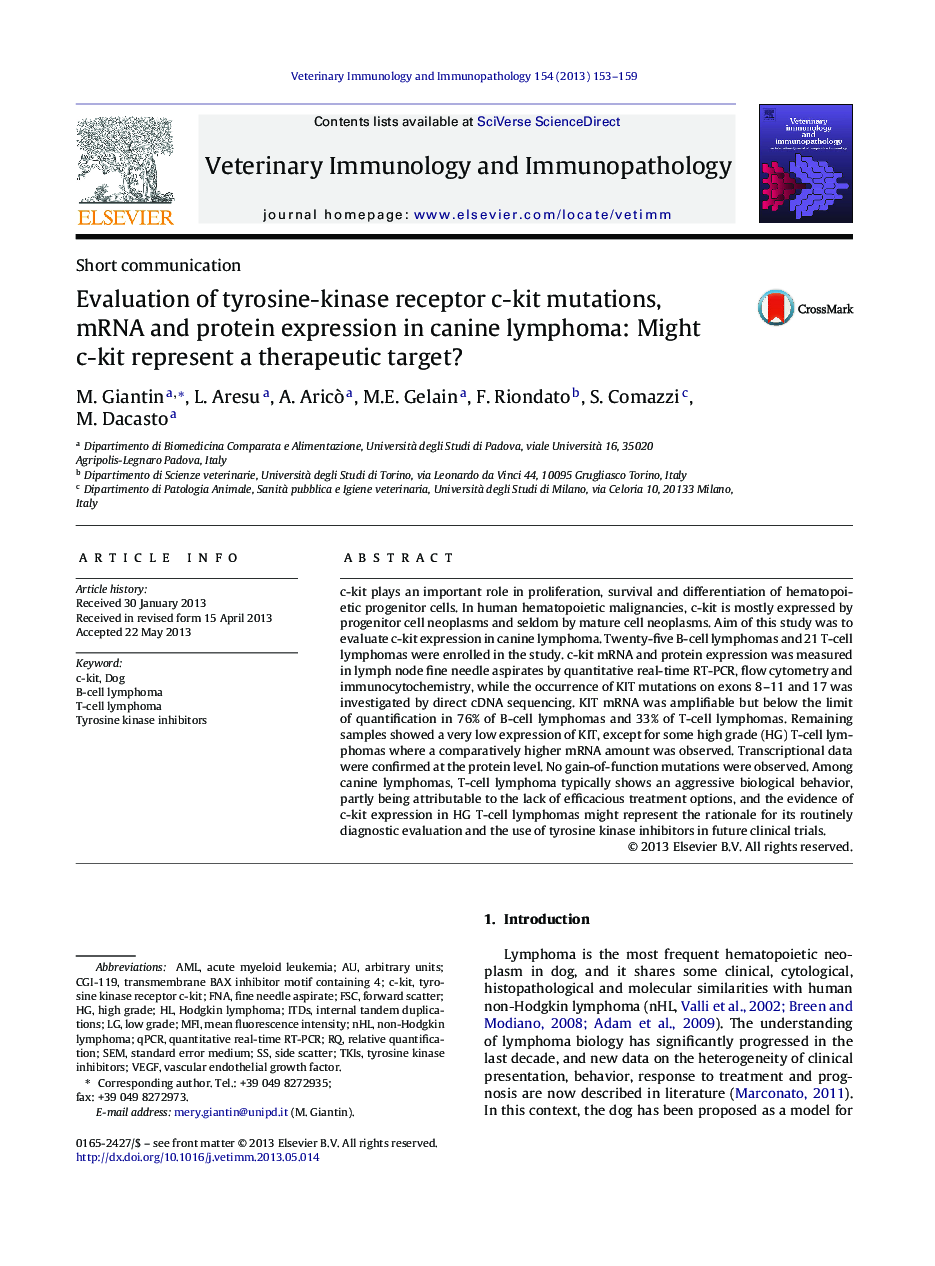| Article ID | Journal | Published Year | Pages | File Type |
|---|---|---|---|---|
| 2461767 | Veterinary Immunology and Immunopathology | 2013 | 7 Pages |
c-kit plays an important role in proliferation, survival and differentiation of hematopoietic progenitor cells. In human hematopoietic malignancies, c-kit is mostly expressed by progenitor cell neoplasms and seldom by mature cell neoplasms. Aim of this study was to evaluate c-kit expression in canine lymphoma. Twenty-five B-cell lymphomas and 21 T-cell lymphomas were enrolled in the study. c-kit mRNA and protein expression was measured in lymph node fine needle aspirates by quantitative real-time RT-PCR, flow cytometry and immunocytochemistry, while the occurrence of KIT mutations on exons 8–11 and 17 was investigated by direct cDNA sequencing. KIT mRNA was amplifiable but below the limit of quantification in 76% of B-cell lymphomas and 33% of T-cell lymphomas. Remaining samples showed a very low expression of KIT, except for some high grade (HG) T-cell lymphomas where a comparatively higher mRNA amount was observed. Transcriptional data were confirmed at the protein level. No gain-of-function mutations were observed. Among canine lymphomas, T-cell lymphoma typically shows an aggressive biological behavior, partly being attributable to the lack of efficacious treatment options, and the evidence of c-kit expression in HG T-cell lymphomas might represent the rationale for its routinely diagnostic evaluation and the use of tyrosine kinase inhibitors in future clinical trials.
